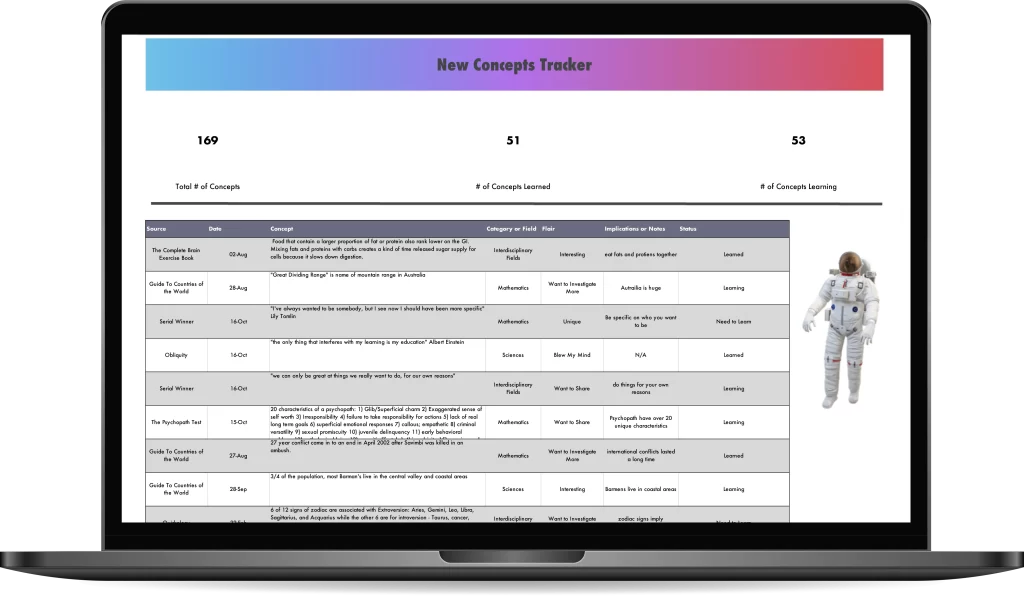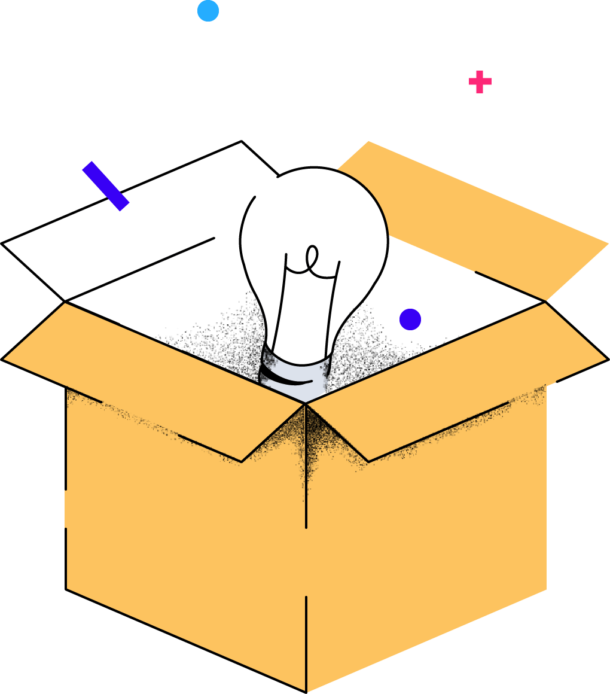Table of Contents
Introduction
Why Use a Concept Tracking System
Increase Productivity with Concept Tracking Systems
Key Features of Concept Tracking Systems
Maximizing Efficiency with a Concept Tracking Template
Conclusion
Introduction
In today’s dynamic business landscape, the need for efficient project management has never been more critical. Companies are constantly juggling multiple projects, ideas, and tasks that require meticulous tracking and organization. This is where concept tracking systems come into play. These systems are designed to help businesses manage the lifecycle of ideas and projects—from conception to completion—ensuring that every aspect of a project is meticulously tracked and executed.
A concept tracking system can serve as a digital nerve center for your team. It consolidates all your project-related data into a single, easy-to-navigate platform, making it easier for team members to collaborate and stay informed. This consolidation not only improves communication but also enhances the accuracy and speed with which projects are completed. As a result, organizations that use concept tracking systems often find themselves better equipped to handle complex projects and tight deadlines.
Why Use a Concept Tracking System
Implementing a concept tracking system can be a game-changer for your business. One of the primary reasons why you should use a concept tracking system is its ability to centralize information and provide real-time updates. In traditional project management setups, information is often scattered across various platforms, leading to inefficiencies and miscommunication. A concept tracking system, however, consolidates all relevant information into one accessible location, ensuring that everyone on the team has access to the same data at all times.
Another compelling reason to use a concept tracking system is its ability to provide detailed insights and analytics. These systems allow you to track the progress of projects in real-time, offering valuable data on team performance, task completion rates, and potential bottlenecks. This information is crucial for making informed decisions and ensuring that your projects stay on track. By identifying issues early on, you can take corrective action before they escalate, ultimately leading to more successful project outcomes.
Furthermore, a concept tracking system enhances accountability within your team. By assigning tasks and setting deadlines within the system, everyone knows exactly what is expected of them and when. This clarity reduces the likelihood of tasks being overlooked or delayed, as team members are constantly aware of their responsibilities and progress. In turn, this increased accountability can lead to higher levels of productivity and a more efficient workflow.
Increase Productivity with Concept Tracking Systems
The impact of a concept tracking system on productivity cannot be overstated. One of the key ways these systems increase productivity is by automating routine tasks and reducing the administrative burden on your team. For example, concept tracking systems can automatically send reminders, update task statuses, and generate progress reports, freeing up valuable time for your team to focus on more strategic activities. This automation ensures that nothing falls through the cracks and that every task is completed in a timely manner.
In addition to automation, concept tracking systems provide a clear overview of all ongoing projects, allowing teams to prioritize tasks more effectively. When everyone knows which tasks are the most critical and what needs to be done next, it reduces the risk of bottlenecks and ensures that resources are allocated efficiently. This clarity not only enhances individual productivity but also improves the overall performance of the team.
Moreover, concept tracking systems foster better collaboration by providing a transparent view of each team member’s workload and progress. This transparency encourages teamwork and helps to prevent conflicts or misunderstandings, as everyone is aware of what others are working on and how their efforts contribute to the project as a whole. By creating a more collaborative and cohesive work environment, concept tracking systems can significantly boost productivity and help teams achieve their goals more efficiently.
Key Features of Concept Tracking Systems
Understanding the key features of concept tracking systems is essential for selecting the right tool for your organization. One of the most critical features is task management, which enables users to create, assign, and track tasks with precision. This feature ensures that every task within a project is accounted for, deadlines are met, and responsibilities are clear. Effective task management is the backbone of any successful project, making this feature indispensable.
Another important feature is the ability to integrate with other tools and platforms that your team may already be using. Integration capabilities allow concept tracking systems to connect with tools like email, calendars, and communication platforms, creating a seamless workflow that reduces the need for manual data entry and minimizes the risk of errors. This integration ensures that all aspects of your project management process are aligned, making it easier to manage complex projects and large teams.
Reporting and analytics are also key features of concept tracking systems. These tools provide valuable insights into your project’s progress, team performance, and potential issues. By analyzing this data, you can make informed decisions, optimize your processes, and continuously improve your project management strategies. Advanced reporting features often include customizable dashboards, real-time updates, and the ability to drill down into specific metrics, making it easier to monitor the health of your projects at a glance.
Furthermore, many concept tracking systems offer collaboration features such as shared workspaces, document storage, and communication tools. These features facilitate teamwork by allowing team members to share ideas, documents, and feedback within the system. This centralized communication hub reduces the need for endless email threads and ensures that everyone is on the same page, enhancing both efficiency and collaboration.
Maximizing Efficiency with a Concept Tracking Template
In addition to using a comprehensive concept tracking system, a simple template can be an incredibly useful tool for individuals who need to capture and organize ideas quickly. For instance, if you’re actively searching for a job, our concept tracking template is perfect for keeping track of new opportunities, interesting ideas, or valuable concepts you come across during your search. This template allows you to record these insights immediately, ensuring you don’t forget them later.
Our template is designed to be straightforward and easy to use, helping you to maintain an organized approach to your job search or any other project. By regularly updating the template with new ideas or concepts, you can create a valuable repository of information that you can refer to at any time. Whether you’re brainstorming new projects, refining strategies, or simply trying to stay on top of your to-do list, this template can be an invaluable resource.
Moreover, the template complements the broader concept tracking system by providing a quick and flexible way to capture ideas on the go. It’s particularly useful for those moments when you need to jot down a concept quickly without the need to log into a more complex system. Over time, this practice of regularly capturing and reviewing ideas can lead to greater creativity and productivity, as you’ll have a wealth of insights at your fingertips, ready to be acted upon.
If you’re interested in trying out this simple yet powerful tool, download our The New Concepts Tracker here. It’s an excellent starting point for anyone looking to enhance their personal or professional productivity by keeping track of important concepts and ideas.

Conclusion
To sum up, using a concept tracking system is a strategic decision that can vastly improve your project management capabilities and overall productivity. These systems offer a centralized platform for task management, collaboration, and data analysis, all of which are essential for executing projects efficiently and effectively. By leveraging the key features of concept tracking systems, such as task management, integration, and reporting, businesses can streamline their workflows and achieve better outcomes.
Additionally, integrating a simple concept tracking template into your routine can further enhance your ability to capture and organize ideas, particularly during activities like job searching. This template serves as a quick and flexible tool to ensure that valuable insights are never lost, providing you with a competitive edge in managing your tasks and projects.
Whether you’re managing a large team or working independently, concept tracking systems and templates offer the tools you need to stay organized, productive, and successful. Take the first step towards optimizing your workflow by exploring these tools today.





0 Comments